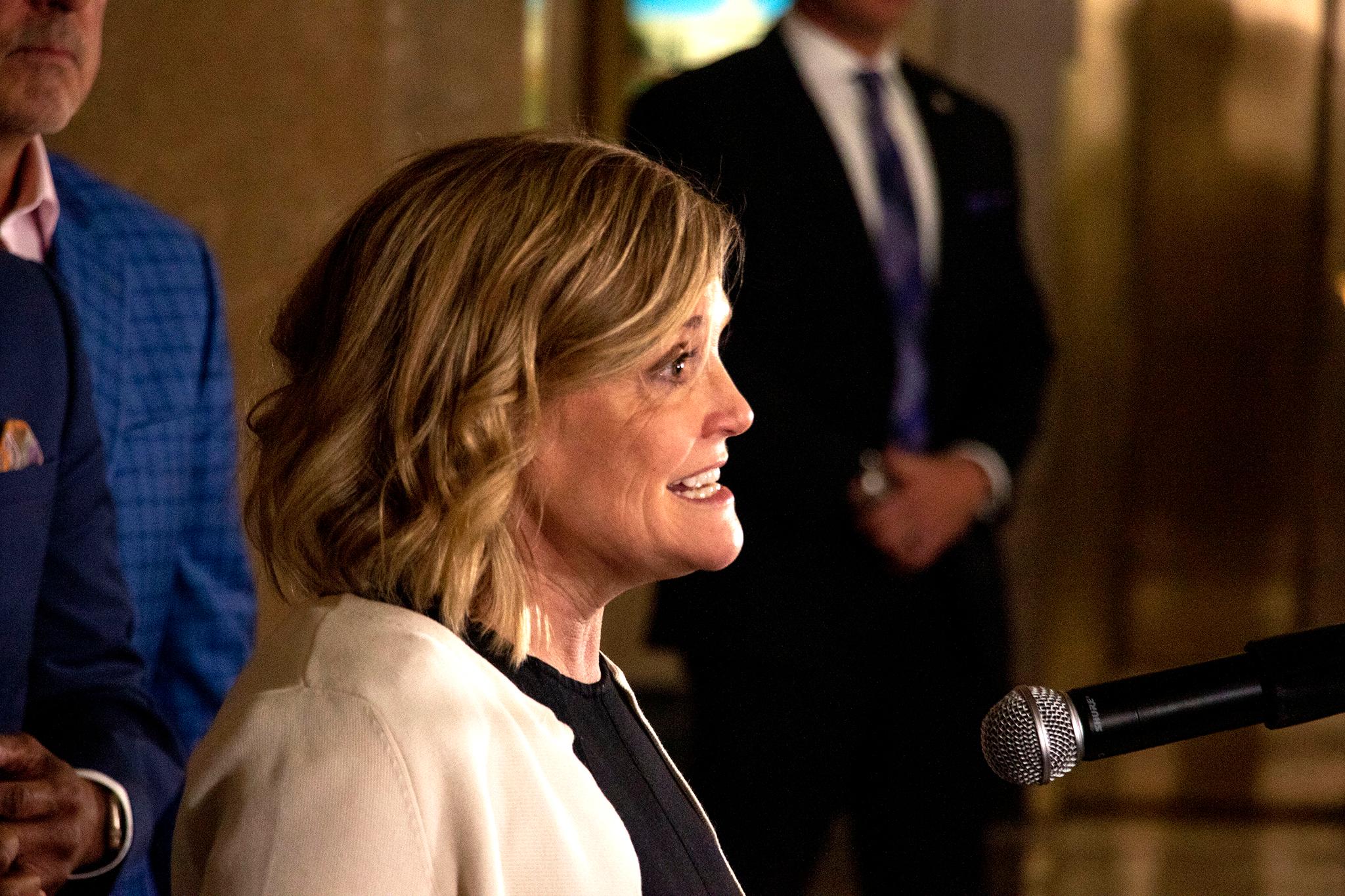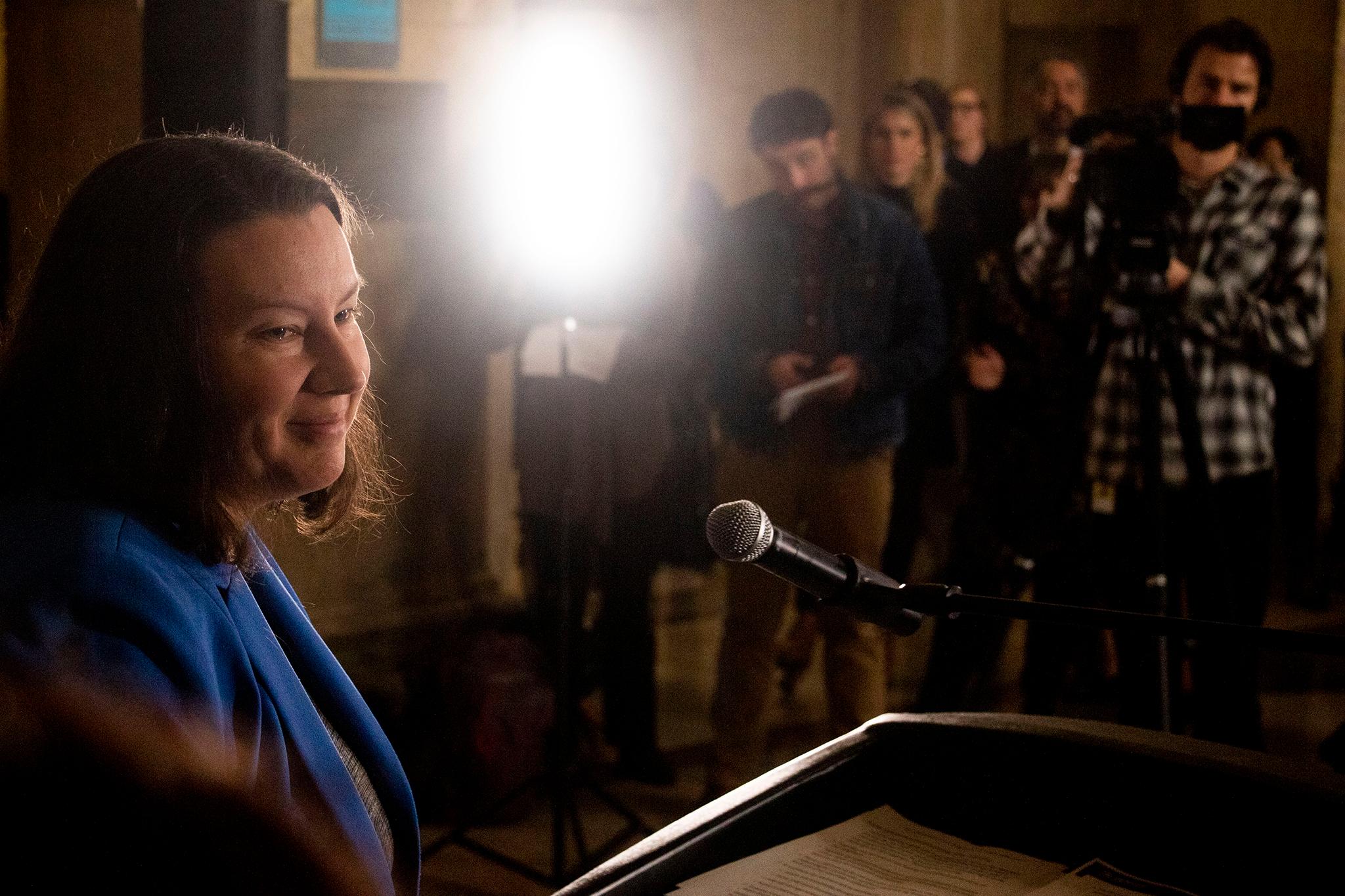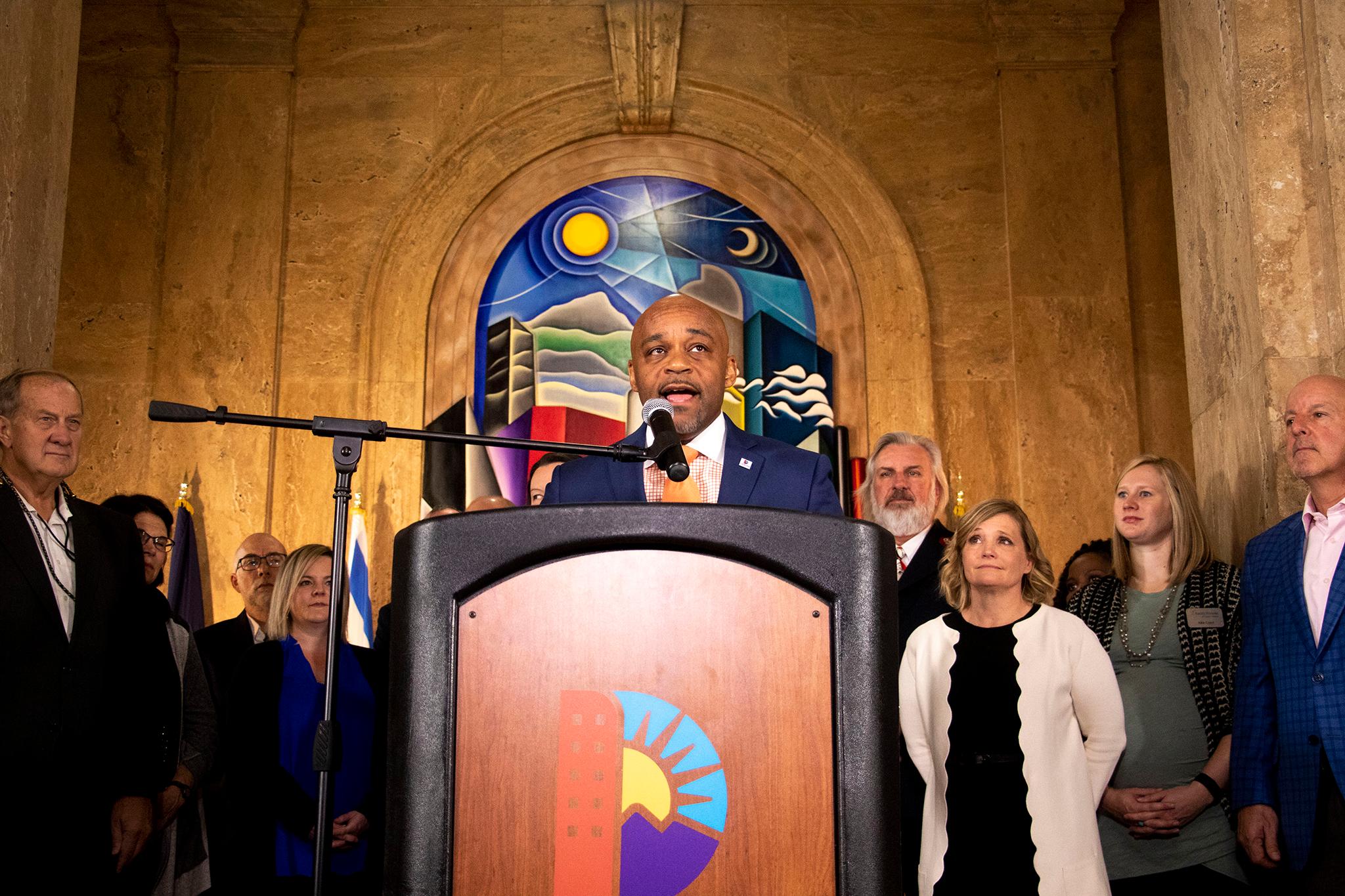Denver is planning a new women's shelter as part of a push aided by the private sector and foundations to improve services for people experiencing homelessness that grew in part out of the debate over the city's camping ban.
Volunteers of America was awarded just over $600,000 in city contracts for the facility that will shelter up to 25 older women and women who are military veterans. It will be on the ground floor of the Volunteers of America's Bill Daniels Veterans Services Center at 1247 Santa Fe Drive and will add to beds for women currently provided by The Delores Project and Catholic Charities.
"We've been talking about this for some time," Lindi Sinton, Volunteers of America's vice president for program operations, said Wednesday. "We just didn't have the money."
The shelter will be open 24 hours a day -- many shelters in Denver are open only at night. Case managers will work with residents to help them find and keep permanent homes, Sinton said.
"We're anxious to help them make that next step into housing," Sinton said.
Sinton spoke after Mayor Michael Hancock and his housing department chief Britta Fisher announced a total of 11 new contracts worth $6.9 million for Volunteers of America and other providers such as the Colorado Coalition for the Homeless, the Salvation Army and Urban Peak. In addition to the new women's shelter, the contracts provide for improvements at existing shelters, including staffing to extend hours and support for people seeking jobs and permanent housing. New elevators, ramps and other renovations to ease access for people with disabilities are also included. Some of the contracts also allow service providers to offer more motel rooms to families and others experiencing homelessness.
The money is the first batch disbursed from a pot of $15.7 million that Hancock announced in April. On Wednesday, Hancock reflected back to the discussion sparked when advocates for people experiencing homelessness got Initiative 300 on the May municipal ballot. Voters overwhelmingly rejected 300, which would have overturned an ordinance adopted by City Council in 2012 that made it illegal "to reside or dwell temporarily in a place, with shelter."
Proponents had said overturning the camping ban was a matter of protecting civil rights.
Opponents of 300, including Hancock, said the camping ban was necessary to maintaining public health and safety.
Together Denver, the group led by prominent business and public policy figures that raised more than $2 million to fight 300, also said the measure did not address the needs of people experiencing homelessness and that the city "can do better." It was in that spirit, Hancock said, that business and foundation leaders approached him just before the May vote, telling him that "we recognize that the city cannot do this by itself."
The $15.7 million devoted to improving homelessness services over the next three years includes $11.2 million from the city, $1 million from the Anschutz Foundation and $1.5 million from the Colorado Health Foundation. The Downtown Denver Partnership led a drive that resulted in a total contribution of $1 million from the Associated General Contractors of Colorado, the Visit Denver tourism association, Together Denver, JP Morgan Chase and others.

In May, Denverites got an opportunity to contribute by donating online or by sending a check to Mile High United Way. Fisher, of the city's housing department, said Wednesday that at least $50,000 had so been raised from members of the public so far.
"Together we are going to do better," the mayor said Wednesday.
Fisher acknowledged that the current shelter system wasn't meeting the needs of people who need a place to rest outside of conventional shelter's overnight hours, to store belongings while they work, or where they can navigate in a wheelchair. Some also don't feel safe in the city's shelters, Fisher said.
"These are critical needs, pointed out by organizations and advocates," Fisher said. "We want to address these head-on."
Advocates say women, families and younger people are inadequately served by a system that seems designed mainly for single men.
A court case following an arrest under the camping ban has led to a challenge of the ban on constitutional grounds. Jerry Burton, an advocate for people experiencing homelessness who himself has lived on and off the streets of Denver for decades, argued in part that judges in other cities have overturned bans similar to Denver's because their shelter systems were found to be inadequate. The city countered during testimony that it usually has enough beds for single men such as Burton, but witnesses questioned whether other people were adequately served. Denver County Judge Johnny Barajas's decision on Burton's challenge could come any day.

Wednesday, 65-year-old Marley Young sat on the grass at Civic Center Park, warming herself in the sun a block from the City & County Building rotunda where Hancock and Fisher had announced plans for the new women's shelter.
Young said she had been without a home since the 1970s, soon after she left home as a teenager and came to Denver seeking work. She occasionally sleeps at a shelter, but more often, she said, "I camp out."
"It's okay," Young said. "I have a good sleeping bag."
Young said that to keep safe, she makes sure no one else knows where she sleeps.
"That's good that they're opening another shelter," Young said. "You can stay there all day? That's good. Sometimes you don't have anywhere to go during the day, being homeless."
"When are they opening it?"
The answer to Young's question depends in part on the Denver City Council, which must approve the contract. The approval process starts Dec. 11 with a review by the homelessness committee.
Volunteers of America's Sinton, who said she hoped to have the shelter open by spring, saw the need in "overflowing" conditions at existing women's shelters and in women such as Young.
"I see them in tents. I see them on the streets. I see them around our administrative offices at 20th and Larimer," Sinton said.
She said Volunteers of America has already tested its Santa Fe facility as a women's shelter. It hosted The Delores Project for about a yaer after that organization razed its old shelter to build a new one that opened earlier this year.
"We showed ourselves and the surrounding community that it could work and work well," Sinton said.
At an evening ceremony to raise awareness about the hundreds of people experiencing homelessness in Denver, Fisher said what was underway was "re-imagining our shelter system."














